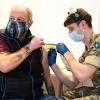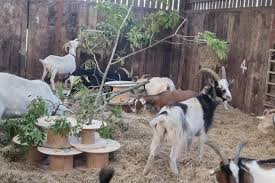Bird flu outbreak explained and risk to humans after man catches deadly strain

A man has become the first person in the UK to contract bird flu, it was confirmed yesterday.
Alan Gosling, 79, who kept ducks in his home, contracted avian flu after a local flock of 160 came up positive and were culled last week.
The news follows a string of outbreaks of avian influenza among the bird population across the UK.
Measures have been put in place to slow the spread of the virus amid similar outbreaks across Europe and Asia.
Here is what we know about the virus in Scotland and elsewhere so far.
Read More Related Articles Read More Related Articles What is bird flu?
Avian flu, which is commonly known as bird flu, is a type of influenza that spreads among the bird population.
There have been a ‘large number’ of outbreaks and incidents of avian influenza in birds in the UK.
Due to the outbreaks of the H5N1 strain, a significant number of birds have been culled in the UK in a bid to protect the avian population.
Similar outbreaks have also been reported across Asia and Europe between October and the end of December.
Avian influenza generally flares up in the autumn when the infection is spread by migrating wild birds.
Did you know you can keep up to date with the latest news by signing up to our daily newsletter?
We send a morning and lunchtime newsletter covering the latest headlines every day.
We also send coronavirus updates at 5pm on weekdays, and a round up of the week's must-read stories on Sunday afternoons.
Signing up is simple, easy and free.
You can pop your email address into the sign up box above, hit Subscribe and we'll do the rest.
Alternatively, you can sign up and check out the rest of our newsletters here.
The Scottish Government has recorded cases of H5N1 among the avian population in Scotland over the past few months.
Specialist health teams have been called to five premises across the country, with outbreaks reported at four places in Dumfriesshire and one in Angus.
Cases in wild bird species have been found in the following locations in Scotland:
- Aberdeenshire
- Angus
- Dumfries and Galloway
- Falkirk
- Highland
- Midlothian
- Perth and Kinross
- South Lanarkshire

So far only one case of the H5 avian flu virus has been detected in a person based in the south west of England.
Alan Gosling, 79, contracted avian flu in Buckfastleigh, Devon, his daughter in law Ellesha Gosling said.
The 26-year-old told how Alan was ordered to test for the disease after a local flock of 160 local ducks came up positive and were culled last week.
Local duck expert Alan helps looks after Muscovy ducks in the town and eventually took them in to his home.
The Health Security Agency (HSA) today confirmed the case of avian flu.
All contacts of the person have been traced and there has been no evidence of onward spread of the infection to anyone else.
What is the risk to humans?Health officials say that bird-to-human transmission of avian flu is “very rare” and has only occurred in a small number of cases in the UK.
Some strains of bird flu can pass from birds to people, but has only happened on a handful of occasions.
The UK Health Security Agency (UKHSA) say that bird to human transmission usually requires close contact with an infected bird, so the risk to humans is generally considered to be very low.
There has also been some cases of bird-to-human transmission recorded elsewhere in the world.
Measures to limit the spread of bird flu in Scotland have been in place since November 2021.
It is currently a legal requirement for all bird keepers across the UK - whether they have pet birds, commercial flocks or just a few birds in a backyard flock - to keep their birds indoors and follow strict biosecurity measures to limit the spread of the disease.
Don't miss the latest news from around Scotland and beyond - Sign up to our daily newsletter here


 United Kingdom
United Kingdom Argentina
Argentina  Australia
Australia  Austria
Austria  Brazil
Brazil  Canada
Canada  Germany
Germany  Ireland
Ireland  Italy
Italy  Malaysia
Malaysia  Mexico
Mexico  New Zealand
New Zealand  Poland
Poland  South Africa
South Africa  United States
United States 
































